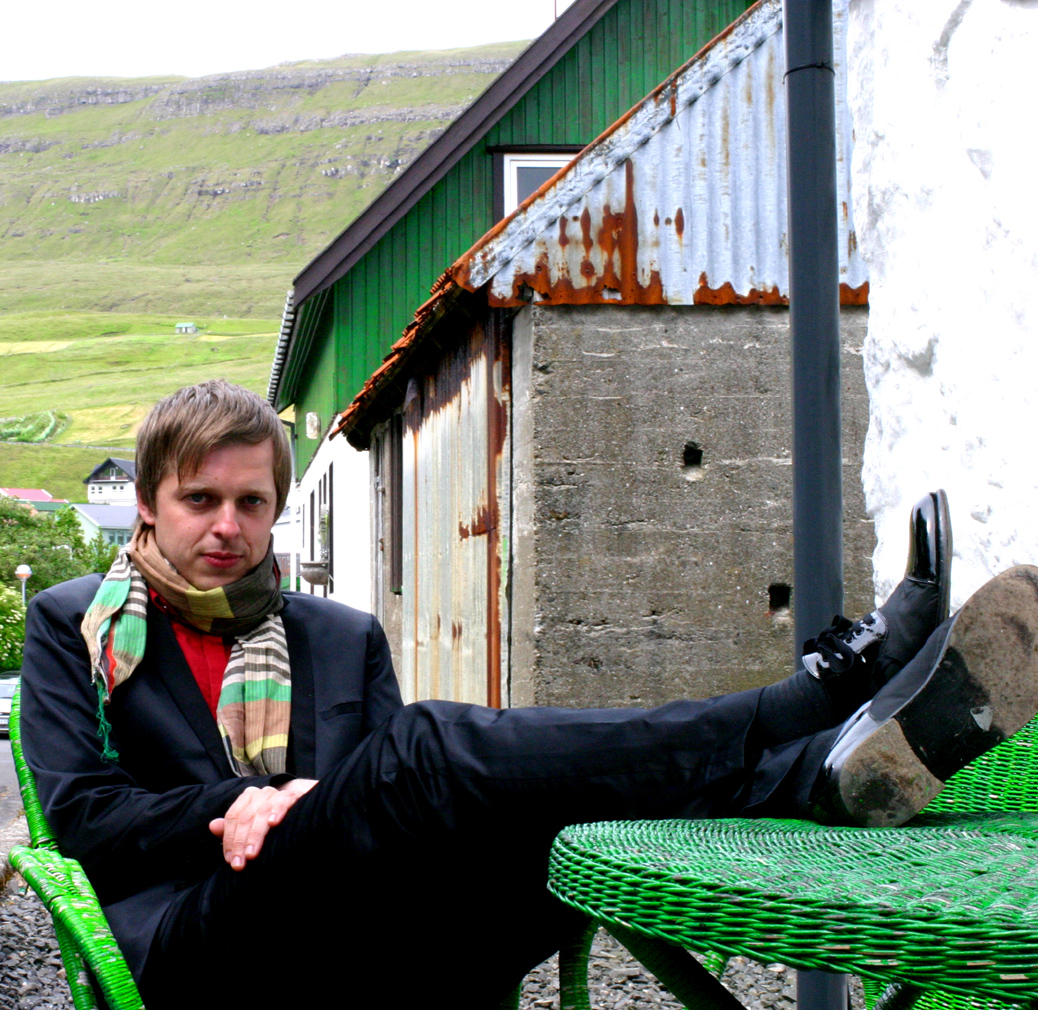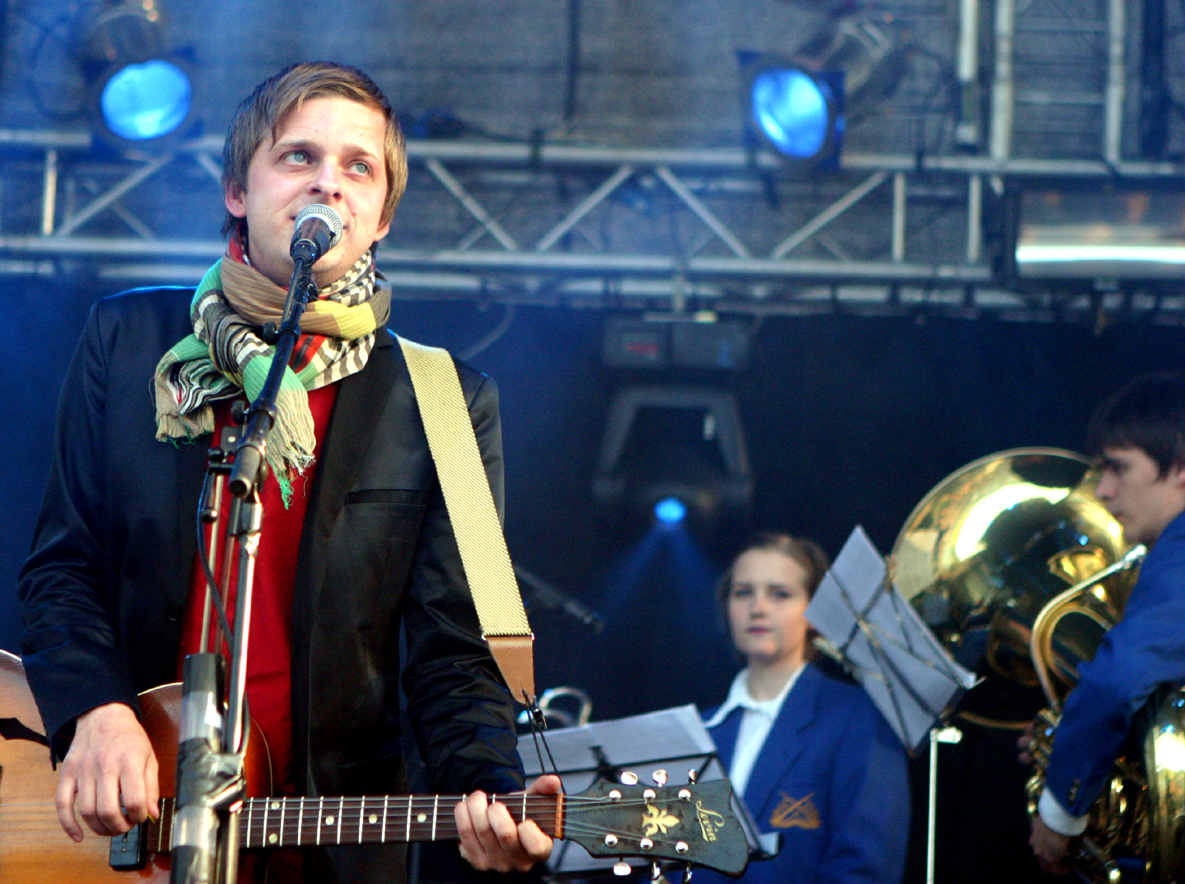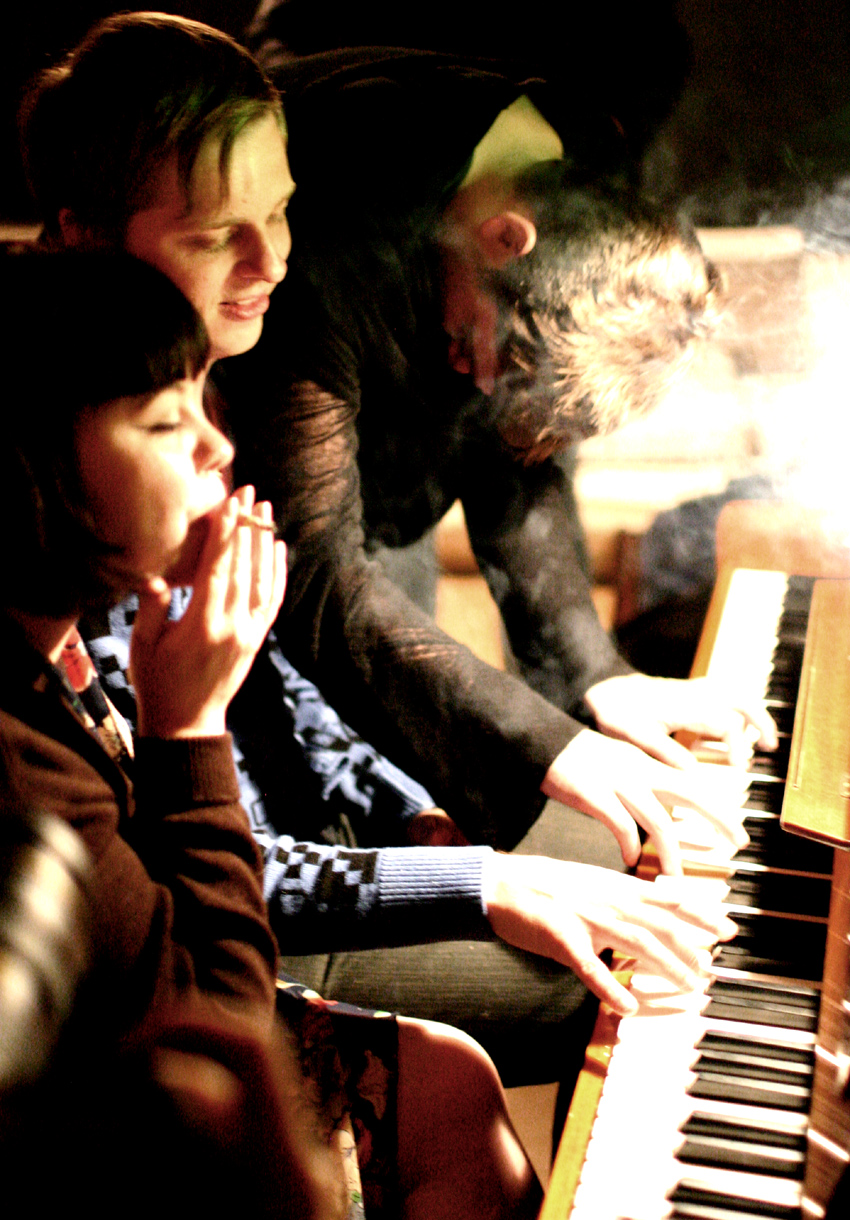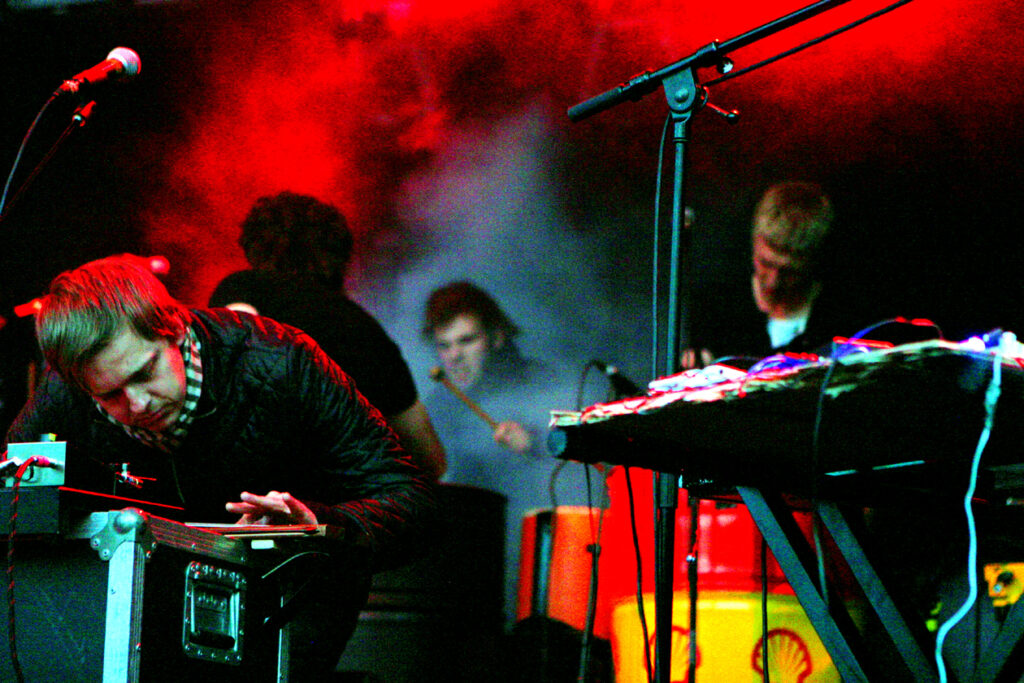The Quietus is in the North Atlantic approximately halfway between Scotland and Iceland, aboard stunning 18th century schooner The Northern Star or ‘Nordlysid’ in Faroese). At its helm is an off-duty Barents trawlerman, Uncle Albert-like in appearance, who captains the vessel purely for the love when not in his day job. Under a canopy of blue skies, sunshine and rolling cloud the good ship cuts around the fjords between Gotusandur (Gota) in the Eysturoy region to the north-east and the capital Tórshavn. Against a backdrop of dramatic green mountains, our sailing boat is a handsome sight.
The passengers are a motley crew of British, Scandinavian and American media types invited by the Faroen tourist board to sample the stunning sceneries and affable attitudes of the Islanders themselves. The Faroes plan to extend their tourist season — something that could be seen as yet another signifier of global warming — and although the government accepts what they have to offer can never be that of neighbouring giant Iceland, they at least believe their Islands’ rugged and deep mystical beauty can offer something of a quirky and easily reachable alternative to visitors from Northern Europe. The excellent Atlantic Airways now offers up a twice-weekly service direct from Stanstead across the summer season. But when the winter storms set in, travelling to the islands involves rides on retired trawlers from the Shetlands, or awkward stop-offs in Denmark.

But for the Quietus this is no press-pack beano, whale hunt or bloody tourist romance. It is the attractive fishing village of Gota, and the annual G! Festival set around its pretty bay that takes centre stage this weekend and serves as our vehicle to understanding not only the Faroe’s way, but also local recording artist and rising international interest, Teitur (pronounced ‘Tie-tor’). Teitur Lassen, 32, is currently riding a wave of encouraging feedback off the back of his fourth Album, The Singer, released to wide acclaim last February. His haunting and unique sound has over the years attracted offers to share the stage with Suzanne Vega, Rufus Wainwright and Aimee Mann. He was named best male artist at the Danish music awards in both 2007 and 2009. The last few years have seen Teitur’s music grow in a more mature and experimental direction, including a recent collaboration with contemporary classical artist and Phillip Glass prodigy Nico Muhly, himself in residence with Teitur at this year’s festival.
G! Festival was launched in 2002 to help promote the music produced by the people of the Faroe Islands. In addition to Teitur, folk-pop artist Eivør Pálsdóttir, Lena Andersen, and groups such as The Ghost and Boys in a Band (who are included in this weekend’s lineup) dominate the island’s music scene. Considering Teitur played 750 shows in the three years following his major label debut, Poetry and Airplanes, it remains a mystery why this album’s critical success was not capitalised on outside Scandinavia, particularly in the States and the UK.

What allowed Teitur to continue touring throughout 2005 was the song ‘One and Only’ featuring on soundtracks to Hollywood films My Super Ex-Girlfriend and Aquamarine. Maybe increased exposure will stem from a change of record label: he parted ways with Universal in 2006 citing "musical differences" and is now with London based indie A&G.
Teitur appears on the G! Festival stage twice this weekend; initially with Faroese super group Orka. On the Friday, along with Festival founder Jón Tyril and local Faroen chart topper Hogni, Orka’s bolstered line-up take to the shoreline stage. The money shot with this outfit is their assortment of home-made instruments primarily sourced from household and industrial implements, including a set of oil drums, chain saws and even a lathe. Orka (which means ‘energy’) are hard. They produce industrial vibes and possess a menacing intensity backed up with layered vocal textures and samples.
Teitur Lassen’s own show takes place on the Saturday night just as the sun dips. His group is backed by a local brass band that includes children in its ranks. Opening number ‘We Still Drink The Same Water’ opens procedings to the joy of a mainly teenage crowd. Teitur is magical on the stage and clearly enjoys a homecoming show, working through an evocative set of love songs with graceful melancholia. The energy continues to surge with big hitters like the astonishing ‘Legendary Afterparty’ and later ‘Louie Louie’ which are both clear favourites with the crowd. ‘Don’t Let Me Fall In Love With You’ with its heartbeats of electric bass clunking eerily and helped to life with bursts of well aimed guitar. He finishes up with a simple a cappella version of ‘The Singer’ belted out across the deep blue and icy waters of the Gota’s bay.
A strange high jinks activity follows the show where impressively drunk young men and women race into the foaming sea sporting only socks on their shrinking cocks or g strings round their sandy rumps. With no inclination toward salty dips in Arctic oceans The Quietus takes this lull in the schedule as prime opportunity to catch up with the ever-courteous Teitur. We are guided to a press house kindly obliged to us by a local couple, as is the Faroen way. He is smoking, relaxed, smiling.
Speaking about the show Teitur says: “Yeah, it was really fun. I think it’s different playing here on the Faroes. Also people here know my back catalogue very well. I was playing older music."
When his mainly teenage crowd is mentioned, he says he doesn’t find it strange: “I don’t see The Singer as an adult record. That is the way that I perceived but to my fan base, it connects to young people.”
But there is no getting away from the fact that the songs have a definite melancholic tone, which we associate more with being adult. "I’m a warm person but I think there’s something about wanting to share something. When you sing a song, when you share something and you tell a story the subject has to be something of relevance and something that says something important that you can learn from. And that’s why the subject sometimes becomes serious because I’m not really interested in singing songs about trivial things. So I think that it’s also a way of taking control.
"I write material all the time; I write loads of different songs but the songs I choose to perform are the songs that I find have got a story to tell. I say, ‘Look. This is the story.’ So it comes across as serious because of the subject matter."
Is Teitur the singer a fictional narrator? “No I think it’s definitely all part of myself. I sing about things that I feel strongly about and things that I’ve experienced. It’s always things are true that I sing about. It has to have some sort of relevance to my life also.
When asked about recording The Singer in a 19th Century castle on the Island of Gotland in Sweden, he says: “It was because I am actually a shy person but I’m very social as well. It is contradictory. I seek isolation and privacy and peace, but then also I am addicted to being social also, it’s very strange.”
When I say that ‘Legendary Afterparty’ is one of the most intensely powerful songs I have heard in years, he traces its genesis for me: “Yeah, well I was touring a lot in America when I started out. I started out as a songwriter and I was just writing music for publishers. And then I made my first record in America and went on tour there. I toured just everywhere and then it really sort of changed me a lot and the way I perceived and played music. And then the interesting part was just meeting other musicians and seeing how they do it and also discovering artists, like <a "href="http://www.messengerrecords.com/chris_whitley.php" target="out">Chris Whitley who have a whole existence such as fans, touring and they connect with a lot of people. When I toured with him it just sort of blew me away musically. I’d never heard anything like that.”
“He really fascinated me. And then I met him again, we did another tour about a year later, and he had lots of problems with alcohol and he was a very unstable person. Later I toured with him again and he was back drinking again when I met him, and then it was sort of over. And a couple of months later he had died. And then I realised that the last time I was with him he had known that he was going to die. He had died of cancer. He didn’t tell anyone. So the song I wrote for him was about the last time I saw him, which was after a show. It was kind of a weird show and we just left, went to a hotel and he told me his life story. But what aches in me is that he didn’t tell anyone that he was going to die. He knew that he was going to die but he was still playing shows, playing music. How could he carry all this stuff around and not tell anyone that he’s going to die?”

After talking to him it becomes clear Teitur Lassen, the son of a singer and a lawyer, is a man made of God’s honesty. And a man who desires the truth from all those around him in order for him to understand not only himself, but all art and the world we live in. He strives for meaning in a world which has become swamped by the vacuous and wasteful. He is, I believe, at times melancholy and aloof, but Teitur has the songs, the music and is the singer who believes one should communicate the state of his own soul. What is hidden from us by the privacy of the man outside the music can still be found in the songs. And if one takes the time to commit one quickly realises that it is layered deep in beauty. Indeed, not unlike Teitur’s homeland of the Faroe Islands


